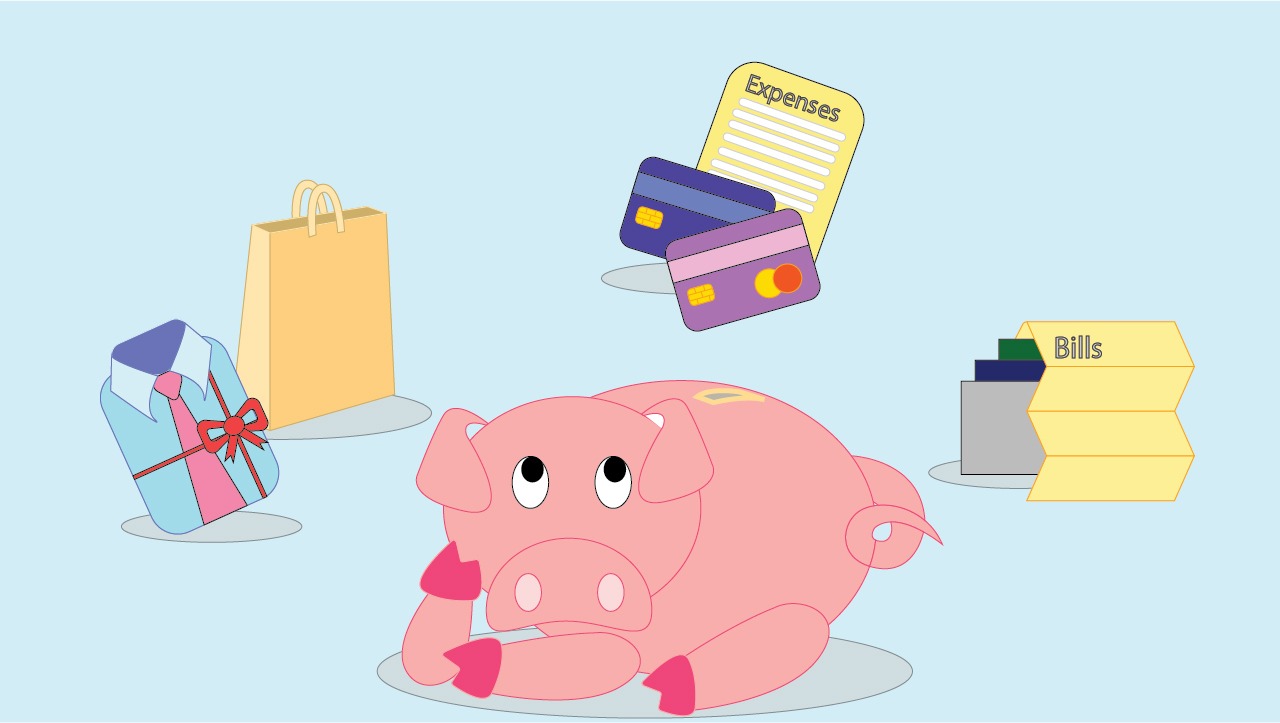
“Do not save what is left after spending; instead spend what is left after saving.”
- Warren Buffett
Saving money is not a concept that comes naturally to people. In fact, it is much easier to spend money on things we would want to purchase rather than the need to purchase, which is why most people find saving a challenging task. This is why some people end up running out of cash at the end of the month. Living paycheck to paycheck gives you little to no room for financial backing.
One tends to buy all the comfort and happiness that they can with hard-earned money, but you shouldn't just live in the present. One should be able to enjoy the money in the future as well, for which they need to save. It is easy to lose the money you make. But, if you take time to create a budget after recognizing your finances, organizing your spending and managing debts, there is a massive possibility for you to achieve your long-term financial goals.
Delayed gratification is one of the biggest money lessons you need to learn by heart. Why? Because when you postpone impulse shopping, you have more at your disposal that you can choose to save or spend. In fact, the earlier you save, the more you benefit: you give more time for your money to compound.
How can people get rich? Rich is all relative. Here are some steps that can help you strike a balance between saving and spending:
- Know the cash inflow: The first step is to identify the amount of money you make every month, which is the inflow of cash. It is easy to think of things as affordable, once you look at the entire salary and forget to subtract the deductions. While creating a budget sheet, make sure you update the cash inflow as the in-hand salary, post the deductions.
- Track your spending: There is a systematic way to track your spending. Categorize the spending to recognize where adjustments can be made. Identify where the cash outflow is maximum and take measures accordingly. Start by listing all the fixed expenses, monthly bills, rents and utilities to have a fair idea of how much you are left for other expenses and what can go in the savings account. Plus, when you are starting out, you’re better off using a debit card, rather than piling on credit debt.
- Set Goals: List your financial goals and divide them between short-term goals, medium-term goals, and long-term goals. Short-term goals are the ones that are achieved in a year, medium-term goals in 2-3 years, and long-term goals take more than five years to accomplish. Prioritizing all your goals will help you list them in the categories automatically.
- Make a Plan: Once you have accurately calculated the inflow and outflow of the cash and mapped the spending habits, you can further break down your expenses. Your daily and monthly expenses like subscriptions and number of outings can be cut down a little, which doesn't affect your lifestyle and allows you to save a little. Remember: small savings here and there make a huge difference. Plan how to save through little cut downs. Try buying consumables you need for a long time on bulk in sales, an immediate return on your investment.
- Regular check-ins: The last step is to review the budget regularly. Compare the budget sheets and witness the progress you have made. With every increment, make sure you save a little more. The aim should be to raise your savings making enough corpus for your future endeavours.
You can use the "Pay Yourself First” concept to save enough money. Set a savings target of 15-20% of one’s gross annual income to deploy it productively in investments, cash, debt, equity or real estate. You can start saving a smaller percentage if they have the necessary expense and can't save 15% of the annual income. But as you grow professionally, make sure to increase the percentage of the savings along with it. The approach has proven to be successful in helping a lot of people save and achieve their financial goals.
“Have those first five fireball shots, but the last two, that’s for the future.” - Mark Cuban
